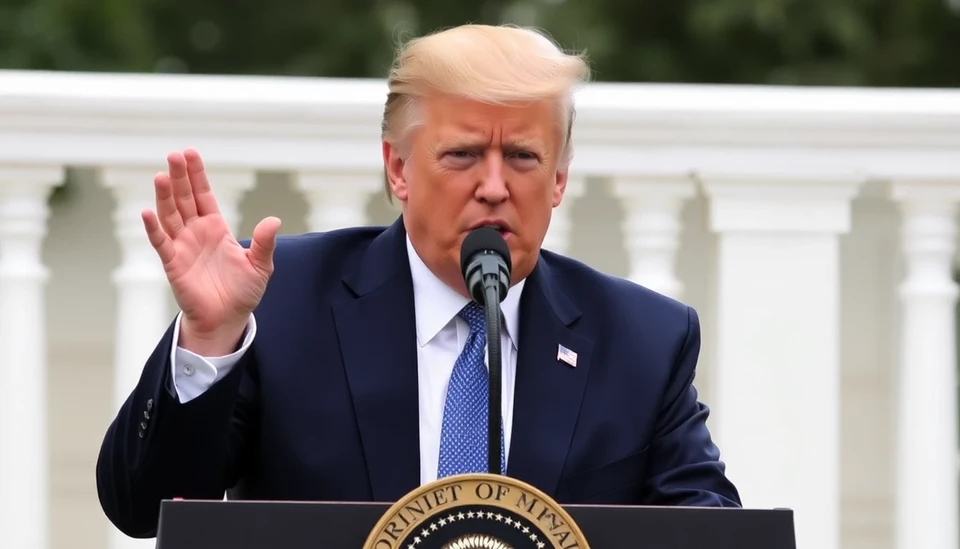
In a significant move reflecting the ongoing tensions between former President Donald Trump and the current administration, Trump has ordered federal agencies to halt expenditures associated with President Joe Biden’s ambitious climate change legislation. This directive is part of a broader strategy by Trump as he gears up for another potential presidential run, positioning himself against what he describes as excessive government spending on climate initiatives that he believes undermine American jobs and economic growth.
The announcement came during a recent rally, where Trump reiterated his criticisms of the Biden administration’s approach to environmental policy, characterizing it as detrimental to the U.S. economy. Trump's call for a suspension of funds comes amid ongoing debates over the effectiveness of Biden's climate policies and their impact on various sectors, particularly those reliant on fossil fuels.
Trump's directive specifically impacts programs and projects financed by the Inflation Reduction Act, which allocates substantial resources to promote renewable energy and reduce carbon emissions. This legislative act has been a cornerstone of Biden's climate agenda, aiming to mitigate climate change effects and transition the nation towards greener energy sources.
In the wake of Trump’s order, several federal agencies, including the Environmental Protection Agency (EPA) and the Department of Energy, are now grappling with potential disruptions to their planned projects. Some officials expressed concerns that the suspension of funds might lead to significant delays in critical climate initiatives, including efforts to combat pollution and protect public health.
Critics of Trump's move argue that halting funding could reverse progress made toward a more sustainable future, whereas supporters believe it will protect traditional energy industries and jobs that they claim are under threat from the current policies. This clash highlights the deep divisions within the U.S. political landscape regarding environmental policies and the extent to which the government should intervene in the economy for climate action.
Looking ahead, it remains to be seen how the Biden administration will respond to this latest development. Some lawmakers have already indicated their intent to fight back against Trump's order, asserting that investments in clean energy and sustainability are vital not only for environmental health but also for long-term job creation and economic stability.
The implications of Trump’s directive could resonate throughout the federal budgeting process and influence the landscape for future climate-related legislative efforts. As the debate intensifies, the focus will likely remain on the intersection of climate policy, economic growth, and political strategy leading into the upcoming election cycle.
As discussions continue, both parties appear to be preparing for a heated battle over the direction of U.S. climate policy, with Trump's actions serving as a rallying point for those who share his skepticism of large-scale climate spending.
With the 2024 presidential election on the horizon, the stewardship of climate initiatives and the associated funding remains a hot-button issue that will undoubtedly shape the political discourse in the coming months.
#Trump #Biden #ClimateChange #FederalFunding #EcoPolicy #GreenEnergy #PoliticalStrategy #2024Elections
Author: Victoria Adams




